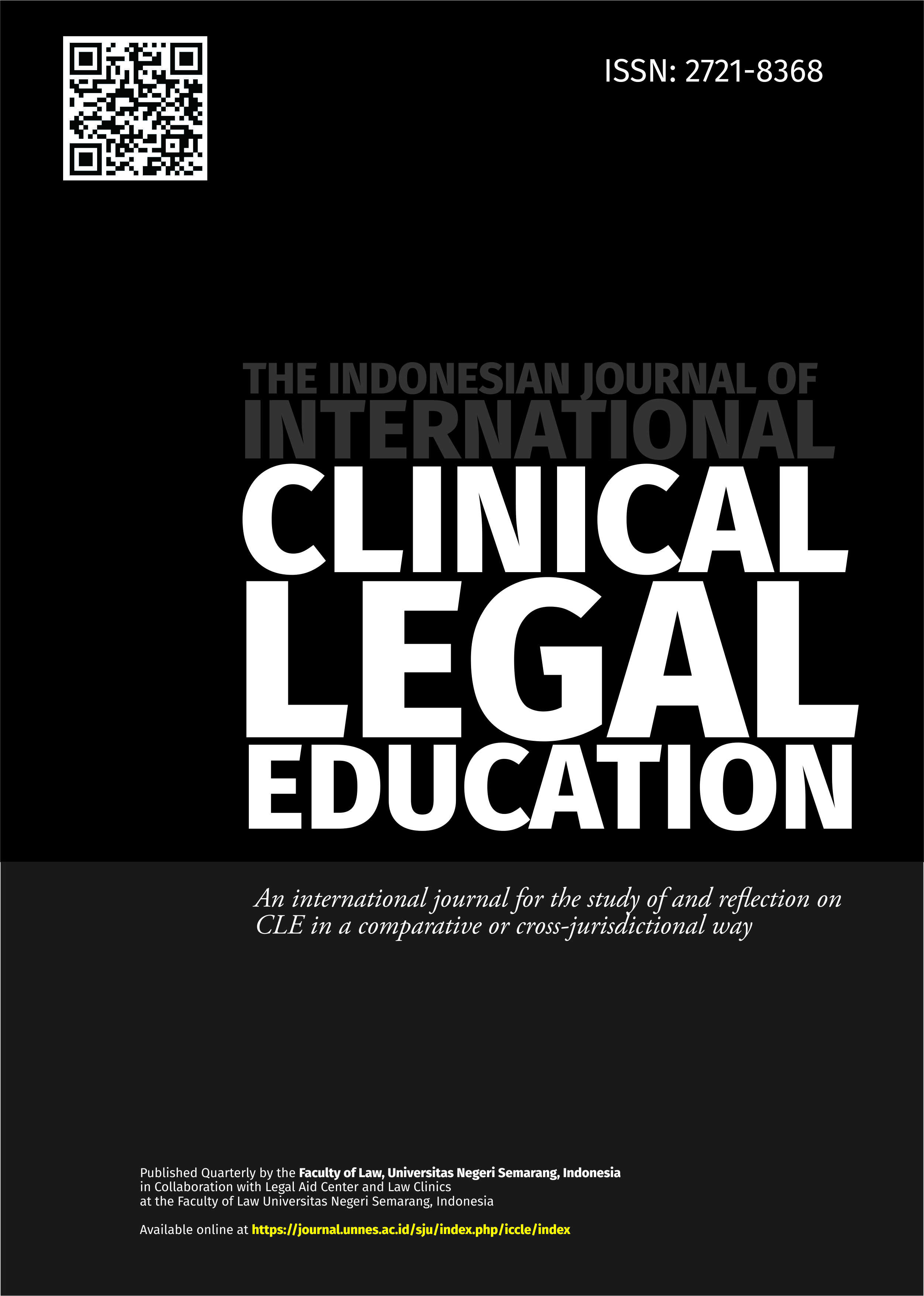Providing Legal Assistance to the Rights of the Defendant in the Case of Murder in Self-Defense
Main Article Content
Abstract
Law No. 16 of 2011 concerning legal aid, it is stated that legal aid is legal services provided by legal aid providers free of charge to legal aid recipients. In order to ease the burden of life for groups of people who are economically incapable, and also useful for creating justice and legal protection for the general public, legal aid is formed where the assistance is given to protect the rights of the accused as social beings, especially those included in the incapacitated or poor. Even so, the defendant's actions have clearly violated the law, but the law must also ensure that the rights of the accused are fulfilled as citizens, especially in terms of human rights. Legal aid institutions play an important role in providing legal assistance to people who need legal assistance to guarantee their rights before the law. The problem in this research is how to implement the provision of legal aid to defendants who are economically incapable of murder cases on the basis of self-defense. What are the inhibiting factors for the implementation of providing legal aid to defendants who are economically incapable? The conclusion in this study is that the law clearly stipulates that every citizen has the right to legal guarantees and protection, the state must protect every human right of its citizens well regardless of position status or SARA.
Article Details

This work is licensed under a Creative Commons Attribution-ShareAlike 4.0 International License.
The copyrights of the article in Indonesian J. Int'l Clinical Leg. Educ. is on the Author(s), however, before publishing, it is required to obtain written confirmation from Author(s) in order to ensure the originality (Author Statement of Originality). The statement is to be signed by at least one of the authors who have obtained the assent of the co-author(s) where applicable. This work licensed under a Creative Commons Attribution-ShareAlike 4.0 International (CC BY-SA 4.0). All writings published in this journal are personal views of the authors and do not represent the views of this journal and the author's affiliated institutions.
References
Amiruddin, A., & Asikin, Z. (2012). Pengantar Metode Penelitian Hukum. Jakarta: Raja Grafindo Persada.
Arif, A. R. (2015). Pelaksanaan Pemberian Bantuan Hukum Terhadap Terdakwa Yang Tidak Mampu dalam Perkara Pidana di Kota Bandar Lampung. Fiat Justisia: Jurnal Ilmu Hukum, 9(1), 103-113.
Azmah, R. D. (2019). “Begal yang Dibunuh Siswa SMA, Terungkap Bukan Pertama Kali Beraksi, Ternyata Komplotan Begal Terkenal”, Online News TRIBUN NEWS, retrieved from https://wow.tribunnews.com/2019/09/13/begal-yang-dibunuh-siswa-sma-terungkap-bukan-pertama-kali-beraksi-ternyata-kompoltan-begal-terkenal?page=4.
Belarminus, R. (2020). “Pelajar yang Bunuh Begal Karena Membela Pacar Didakwa Seumur Hidup”, Online News, retrieved from https://regional.kompas.com/read/2020/01/16/15261101/pelajar-yang-bunuh-begal-karena-membela-pacar-didakwa-seumur-hidup?page=all.
Fitria, F., & Rizanizarli, R. (2017). Pemberian Bantuan Hukum Kepada Masyarakat Miskin dalam Perkara Pidana (Suatu Penelitian di Kabupaten Pidie). Jurnal Ilmiah Mahasiswa Bidang Hukum Pidana, 1(1), 23-33.
Hamzah, A. (2016). Hukum Acara Pidana Indonesia Edisi Kedua. Jakarta: Sinar Grafika.
Ibrahim, J. (2012). Teologi & Metodologi Penelitian Hukum Normatif. Malang: Bayumedia Publishing.
Mappiase, S. (2015). Logika Hukum Pertimbangan Putusan Hakim. Jakarta: Kencana.
Moeljanto, M. (1982). Hukum Acara Pidana. Bandung: Sinar Grafika.
Rachmawati, R. (2020). “Duduk Perkara Pelajar Bunuh Begal di Malang Vonis Pembinaan 1 Tahun”, Online News, retrieved from. https://regional.kompas.com/read/2020/01/24/10500011/duduk-perkara-pelajar-bunuh-begal-di-malang-divonis-pembinaan-1-tahun-di?page=al.
Rinduan, S. (1983). Beberapa Hal Tentang Hukum Acara Pidana. Bandung: Alumni.
Soekanto, S. (1984). Pengantar Penelitian Hukum. Jakarta: UI Press.
Soekanto, S. (2017). Faktor-Faktor Yang Mempengaruhi Penegakan Hukum. Jakarta: PT Raja Grafindo Persada.
Utoyo, M. (2013). Pelaku Pembunuhan yang Membela Diri Sendiri dalam Mempertahankan Kehormatan dan Harta,. Jurnal Pranata Hukum, 8(2), 149-155.
Wlas, L. (1989). Cakrawala Advokat Indonesia. Yogyakarta; Liberty.
